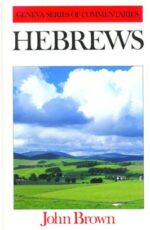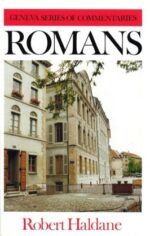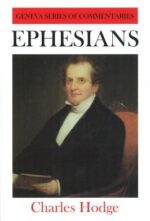Related products
-
Hebrews (John Brown)
$32.00Commentaries generally belong to one of two categories. Either they aim at a devotional thoroughness which lays no great emphasis on the exact meaning of individual words, or they concentrate on such a detailed examination of the text that the spirit and power of the book is largely lost. Among the few commentators who stand between these two positions is Dr. John Brown of Edinburgh (1784-1858).
By seeking to develop a style of exposition that was both edifying to his congregation and valuable to his divinity students, he produced commentaries which, in the words of Dr. William Cunningham, ‘formed a marked era in the history of Scriptural Interpretation’. Not behind the foremost contemporary scholars in his emphasis on correct exegesis, he nevertheless sought not only that the minds of his readers might be brought ‘into immediate contact with the mind of the Spirit’ but that their whole being might be resigned to ‘the empire of the Word of God’.
-
Romans (Robert Haldane)
$34.00‘Dr. Chalmers styled this “a well-built commentary”, and strongly recommended it to students of theology. In his “Sabbath Readings” he writes: “I am reading Haldane’s Exposition of the Epistle to the Romans, and find it solid and congenial food.”‘ — C. H. Spurgeon
Robert Haldane’s Exposition of Romans, both in its contents and in the power of its influence, stands among the foremost of the many treatments of the epistle. As a commentary, Thomas Chalmers ‘strongly recommended’ it; Spurgeon put it in the front rank, and more recently, Martyn Lloyd-Jones owed ‘much profit and pleasure’ to it, characterizing its contents as unsurpassed in ‘warmth of spirit’ and ‘practical application’.
-
Ephesians (Charles Hodge)
$22.00The great virtue of Hodge on Ephesians is his ability constantly to communicate the sense and overall argument of a passage. A peerless teacher, his aim, with the pen as in the classroom, was ‘the simple exhibition of the truth which God had revealed’- his own description of Paul’s preaching.
One of the outstanding Geneva Series commentaries.
“Hodge is most valuable. With no writer do we more fully agree.” — Charles H. Spurgeon




Jonah (Hugh Martin)
$25.00
“A first-class exposition of Jonah. No one who has it will need any other … all rich with good matter.’ — C. H. Spurgeon
‘All his (Martin’s) writings exhibit an unexcelled warmth and fervour. No one could scale higher heights of sanctified eloquence.’ — John Murray
Hugh Martin on Jonah is both a commentary and a devotional classic.
In stock
Jonah
A Geneva Series Commentary
“A first-class exposition of Jonah. No one who has it will need any other … all rich with good matter.’ — C. H. Spurgeon
‘All his (Martin’s) writings exhibit an unexcelled warmth and fervour. No one could scale higher heights of sanctified eloquence.’ — John Murray
Hugh Martin on Jonah is both a commentary and a devotional classic.
About the Author
Hugh Martin (1822-85) combined a brilliant analytical and mathematical mind with a child-like heart which rested in Christ and his atoning work, as revealed in the Scriptures. Born and brought up in Aberdeen, he gained the top prizes in mathematics at the University there, before going on to study for the ministry. He cast in his lot with those who left the Established Church at the Disruption and served at Panbride (Carnoustie) and Free Greyfriars, Edinburgh, until illness forced his retirement from the ministry at the age of 42.
Thereafter, he devoted himself, despite recurring ill health, to writing, preaching and continued involvement in church issues. In 1870 his famous book The Atonement: in its Relations to the Covenant, the Priesthood, the Intercession of our Lord was published, in which he defended the substitutionary nature of the atonement as being grounded in the covenant of grace. In recognition of his achievements, Edinburgh University conferred a Doctorate of Divinity on him in 1872.
Cloth over Board
Hugh Martin
384
Banner of Truth
5.75 x 8.8